Afghan Forces Fight To Retake Pakistan Border Crossing
Afghan forces clashed Friday with Taliban fighters in an operation to retake a key border crossing with Pakistan, as the insurgents tightened their grip in the north and battled for the stronghold of an infamous warlord.
The fighting at Spin Boldak follows weeks of intensifying clashes across Afghanistan, with the Taliban capitalising on the last stages of the US troop withdrawal to launch a series of lightning offensives, overrunning districts at a staggering rate.
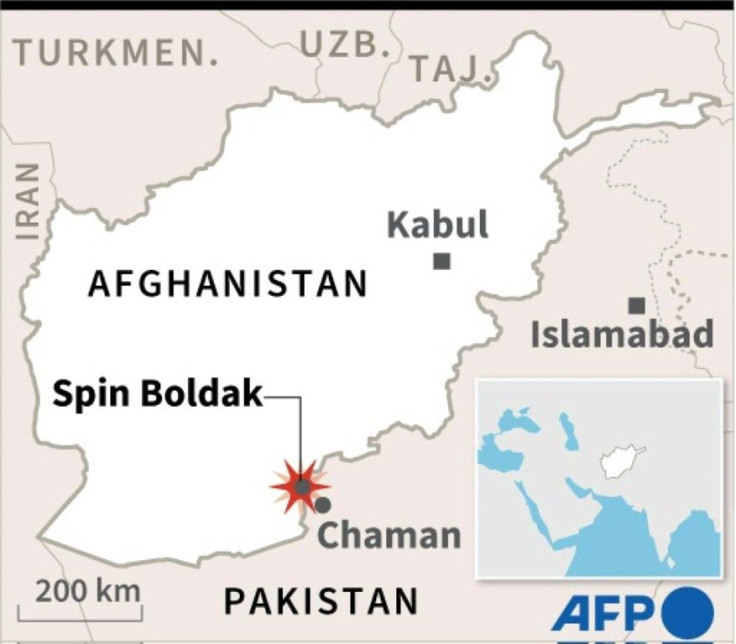
The group have also taken other vital border crossings in the north and west.
A senior official on the Pakistan side of the frontier said heavy fighting could still be heard late Friday afternoon, and noted the Taliban's white flags remained flying over the crossing.
Following fierce skirmishes overnight, dozens of wounded Taliban fighters were brought across the border and were being treated at a Pakistan hospital, an AFP correspondent at the scene reported.
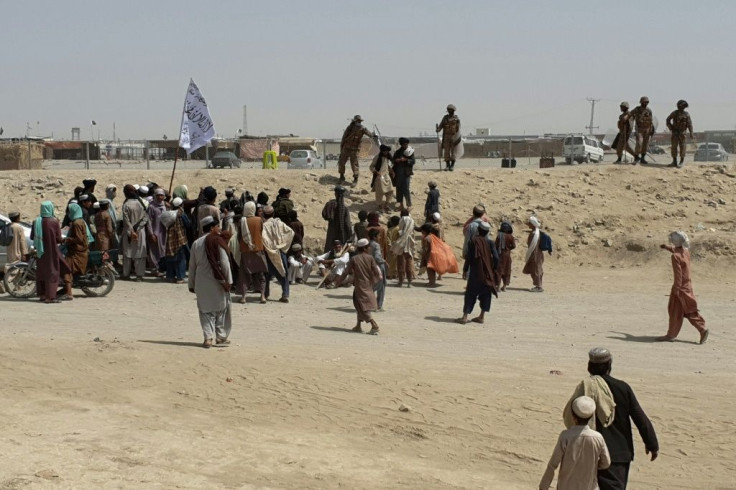
"We have suffered one death and dozens of our fighters have got injured," Mullah Muhammad Hassan, who identified himself as a Taliban insurgent, told AFP near Chaman in Pakistan, about five kilometres (three miles) from the border.
Reuters news agency said one of its photographers had been killed in Friday's Spin Boldak fighting, citing an Afghan army commander.
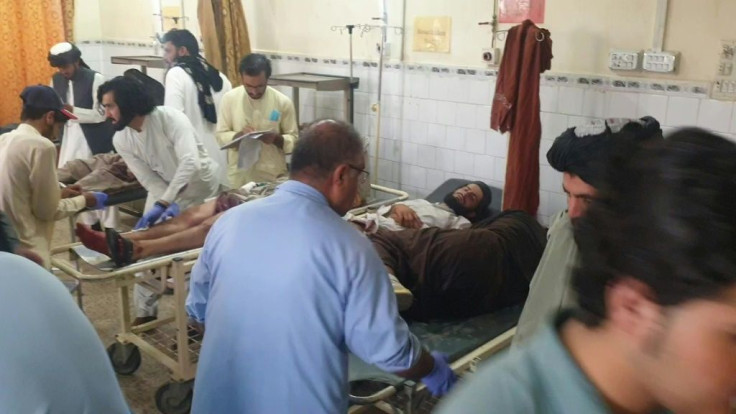
Danish Siddiqui, an Indian national, was part of a team that shared a Pulitzer Prize in 2018 and had been embedded with Afghan special forces, the agency said.
The Spin Boldak-Chaman border crossing is an economic lifeline for southern Afghanistan.
The landlocked country depends on the crucial commercial artery to export much of its agricultural produce, such as almonds and dried fruits, while also serving as the entry point for finished goods coming from Pakistan.
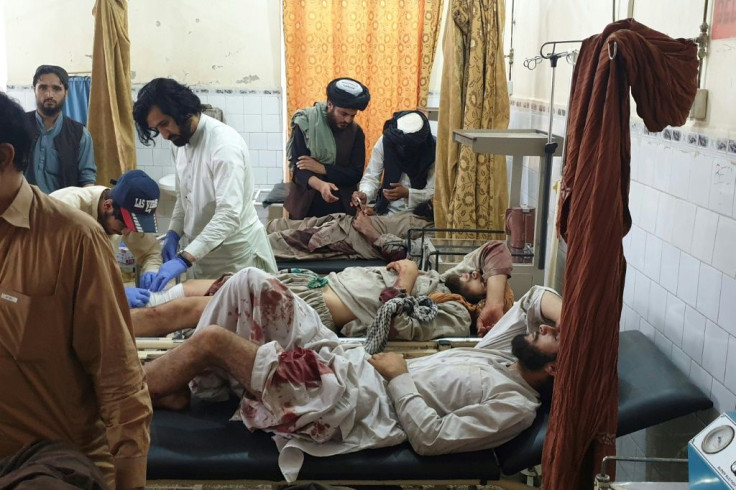
Controlling the crossing will likely provide the Taliban with an economic windfall, allowing the insurgents to tax the thousands of vehicles that pass through the frontier daily.
The border was closed as of late Friday afternoon, with nearly 2,000 people massed near its gate on the Pakistan side, according to an AFP reporter.
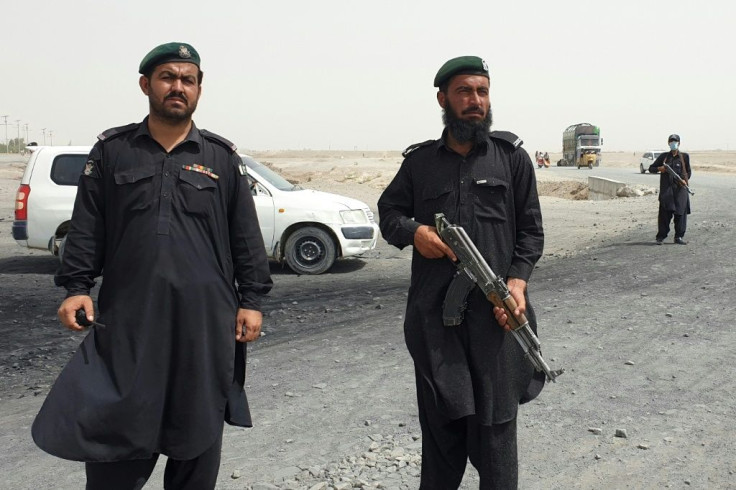
The fight for Spin Boldak comes as the Taliban also closed in on the stronghold of long-time foe Abdul Rashid Dostum in the north, with the insurgent group's spokesman saying the warlord's militia had fled Sheberghan, the capital of Jowzjan province.
The group had "captured the gate" of the city, Taliban spokesman Zabihullah Mujahid said in a WhatsApp message, adding: "Dostum's militia left the city and fled towards the airport."
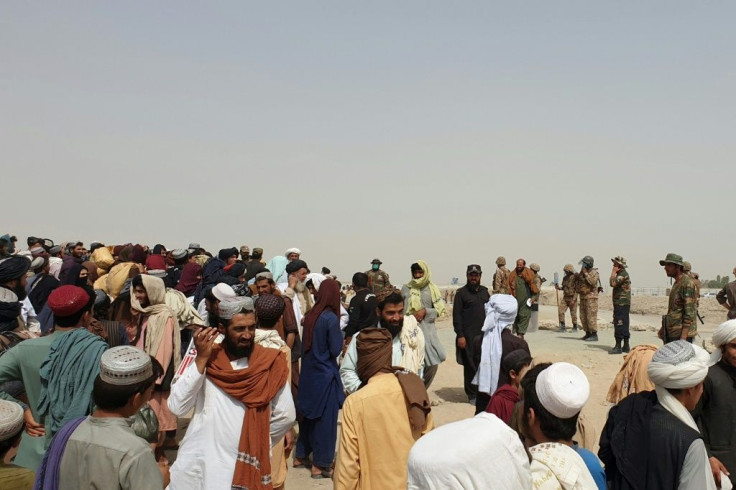
The deputy governor of Jowzjan confirmed that the Taliban had reached the gates of the provincial capital, but said government forces were pushing them back.
For years, Dostum has overseen one of the largest militias in the north, which garnered a fearsome reputation in its fight with the Taliban in the 1990s -- along with accusations that his forces massacred thousands of insurgent prisoners.
Any retreat by his fighters would dent the Kabul government's recent hopes that militia groups could help bolster the country's overstretched military.
As fighting raged over a large swath of the country, a war of words was also heating up between Kabul and Islamabad after the Afghan vice president accused the Pakistani military of providing "close air support to Taliban in certain areas".
Pakistan strongly denied the claim, with a foreign ministry statement saying the country "took necessary measures within its territory to safeguard our own troops and population".
"We acknowledge the Afghan government's right to undertake actions on its sovereign territory," it added.
Afghanistan's southern frontier has long been a flashpoint in relations with its eastern neighbour.
Pakistan's border province of Balochistan has been home to the Taliban's top leadership for decades, along with a large contingent of reserve fighters who regularly enter Afghanistan to bolster their ranks.
As fighting continued, Pakistan said Friday that it would postpone a special conference on Afghanistan in Islamabad planned for the weekend.
However, a new round of talks appeared to be taking shape in Doha, with several high-ranking officials flying out of Kabul on Friday afternoon.
Foreign troops have been in Afghanistan for nearly two decades following the US-led invasion launched in the aftermath of the September 11 attacks, but are due to complete their withdrawal by the end of next month.
The speed and scale of the Taliban onslaught have caught many by surprise, with analysts saying it appears aimed at forcing the government to sue for peace on the insurgents' terms or suffer complete military defeat.
© Copyright AFP {{Year}}. All rights reserved.




















